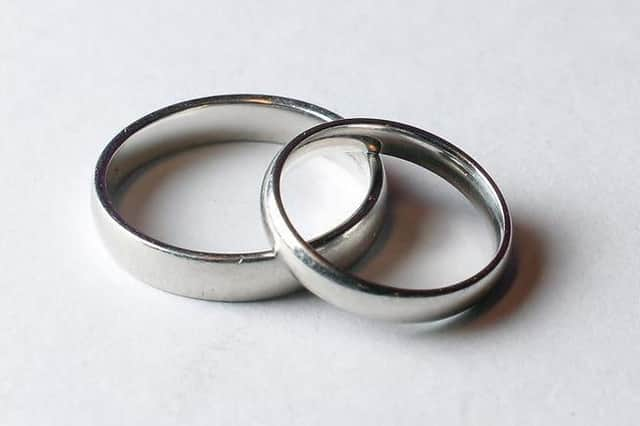Do I qualify for marriage allowance? - Gareth Shaw


Gareth says…
With the information you have provided, it does appear that you could be eligible to claim marriage allowance – but be very wary of responding to the increasing number of ‘reclaim’ adverts you’re encountering, as using one of these firms could zap away a significant part of what you are due.
I’ll explain more on this later.
Marriage allowance is essentially a tax break that allows the lowest earners to transfer over any of their unused personal tax-free allowance to their husband, wife or civil partner.
Advertisement
Hide AdAdvertisement
Hide AdTo be eligible, you also both need to be born after April 5, 1935 and have one partner earning less than the personal allowance and one paying the basic rate of income tax.
This means the low-earning partner’s pay before tax must be less than £12,570 in 2021-22. From what you’ve told me, your wife’s annual income is around £8,300, so that ticks the first box.
The higher-earning partner’s salary must fall between £12,571 and £50,270 (the threshold for higher-rate payers).
In Scotland, the thresholds for basic-rate payers are different, so the higher-earning partner’s salary would have to be less than £43,462.
Advertisement
Hide AdAdvertisement
Hide AdThe amount of unused tax-free allowance that can be transferred over is capped at £1,260 in this tax year – so even though your wife earns £4,000 less than the personal allowance, she cannot transfer over the full amount to you.
But you can then use this allowance to reduce your tax bill, as you will have a bigger personal tax-free allowance.
Let’s go through a worked example of this. Your annual income is £35,000 before tax.
To work out your annual income tax liability, you first deduct your own personal allowance of £12,570, leaving £22,430 liable to income tax at a rate of 20 per cent.
That means you pay £4,486 a year in income tax.
Advertisement
Hide AdAdvertisement
Hide AdNow, if you were to claim marriage allowance, your personal allowance would increase to £13,830, leaving £21,170 liable to income tax at 20 per cent.
This means you would pay £4,234 in income tax, an annual saving of £252.
The good news is that you can backdate claims for marriage allowance up to four years – so if you have only just realised you could claim this, you can claim even more back.
And it is simple to claim – the easiest way is to do it online at gov.uk/apply-marriage-allowance, but you can also apply through a self-assessment tax return or by post.
Advertisement
Hide AdAdvertisement
Hide AdTo apply online, you’ll need to be armed with you and your wife’s National Insurance numbers, as well as ID (such as a P60, passport or driver’s licence) and will have to set up a Government Gateway account.
What you don’t need to do is use one of the companies that offer to help you reclaim marriage allowance on your behalf.
All these firms do is take the same information you would have given to HM Revenue and Customers, and submit it for you, often in return for a significant cut.
In a recent Which? investigation, one person who used these companies only got £441 back from a £968 claim.
Gareth Shaw is the Head of Money at Which?
---
Support The Yorkshire Post and become a subscriber today.
Advertisement
Hide AdAdvertisement
Hide AdYour subscription will help us to continue to bring quality news to the people of Yorkshire. In return, you'll see fewer ads on site, get free access to our app and receive exclusive members-only offers.
So, please - if you can - pay for our work. Just £5 per month is the starting point. If you think that which we are trying to achieve is worth more, you can pay us what you think we are worth. By doing so, you will be investing in something that is becoming increasingly rare. Independent journalism that cares less about right and left and more about right and wrong. Journalism you can trust.
Thank you
James Mitchinson